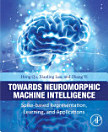Intelligent Medicine on Prediction of Pelvic Lymph Node Metastasis
Oct 2024 · Elsevier
Ebook
200
Pages
family_home
Eligible
info
reportRatings and reviews aren’t verified Learn More
About this ebook
Intelligent Medicine on Prediction of Pelvic Lymph Node Metastasis focuses on leveraging intelligent medical techniques to predict lymph node metastasis, using pelvic cancer as a primary case study. Combined with the actual clinical application scenarios, this book introduces deep neural network models, application systems, and carries out method concentrated on the four major links of lymph node location, partition, segmentation and metastasis prediction, aiming to provide theoretical and experimental reference for researchers in this field. In 8 chapters this title introduces the reader to intelligent medicine and deep neural networks, summarises the intelligent biological neural network and the classical artificial neural network, introduces several commonly used network architectures and a new neural network model, and introduces the deep learning based algorithms on lymph nodes metastasis prediction, summarising the method and experimental results. This book is a friendly learning tool, providing beginners and researchers with an in-depth knowledge of deep learning and how to develop intelligent medicine methods in lymph node metastasis prediction. - Provides readers with the recent deep learning findings and possible future directions on lesion monitoring - Introduces intelligent medicine development and the artificial intelligence basis, including a new generation of neural network - Keeps the reader up-to-date with the latest research progress of deep learning architectures for lymph node metastasis prediction - Gives systematical insights into the deep learning algorithms for lymph node metastasis prediction, experiments and results, and potential research direction
About the author
Haixian Zhang received the Ph.D. degree in Applied Mathematics from the University of Electronic Science and Technology of China, Chengdu, China, in 2010. She was a visiting scholar at Oklahoma State University in 2016. She is currently an Associate Professor with the College of Computer Science, Sichuan University, Chengdu. Her current research interests include neural networks and medical IntelligenceDr. Zhang Yi received the Ph.D. degree in mathematics from the Institute of Mathematics, Chinese Academy of Science, Beijing, China, in 1994. He is currently a Professor with the Machine Intelligence Laboratory, College of Computer Science, Sichuan University, Chengdu, China. He has coauthored several book. His current research interests include neural networks and big data. Prof. Yi was an Associate Editor of the IEEE TRANSACTIONS ON NEURAL NETWORKS AND LEARNING SYSTEMS and the IEEE TRANSACTIONS ON CYBERNETICS in 2014.Ziqiang Wang received the Ph.D. degree in clinical medicine from Third Military Medical University of Chinese P.L.A. He popularized the Expert Consensus on the Diagnosis and Treatment of Lateral Lymph Node Metastasis in Rectal Cancer in China as the pioneer leader. He currently works as the director of Colorectal Cancer Surgery in West China Hospital, Chengdu. He majors in colorectal cancer and minimally invasive radical surgery.
Rate this ebook
Tell us what you think.
Reading information
Smartphones and tablets
Install the Google Play Books app for Android and iPad/iPhone. It syncs automatically with your account and allows you to read online or offline wherever you are.
Laptops and computers
You can listen to audiobooks purchased on Google Play using your computer's web browser.
eReaders and other devices
To read on e-ink devices like Kobo eReaders, you'll need to download a file and transfer it to your device. Follow the detailed Help Center instructions to transfer the files to supported eReaders.







